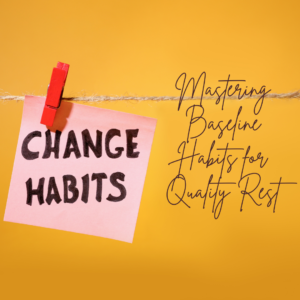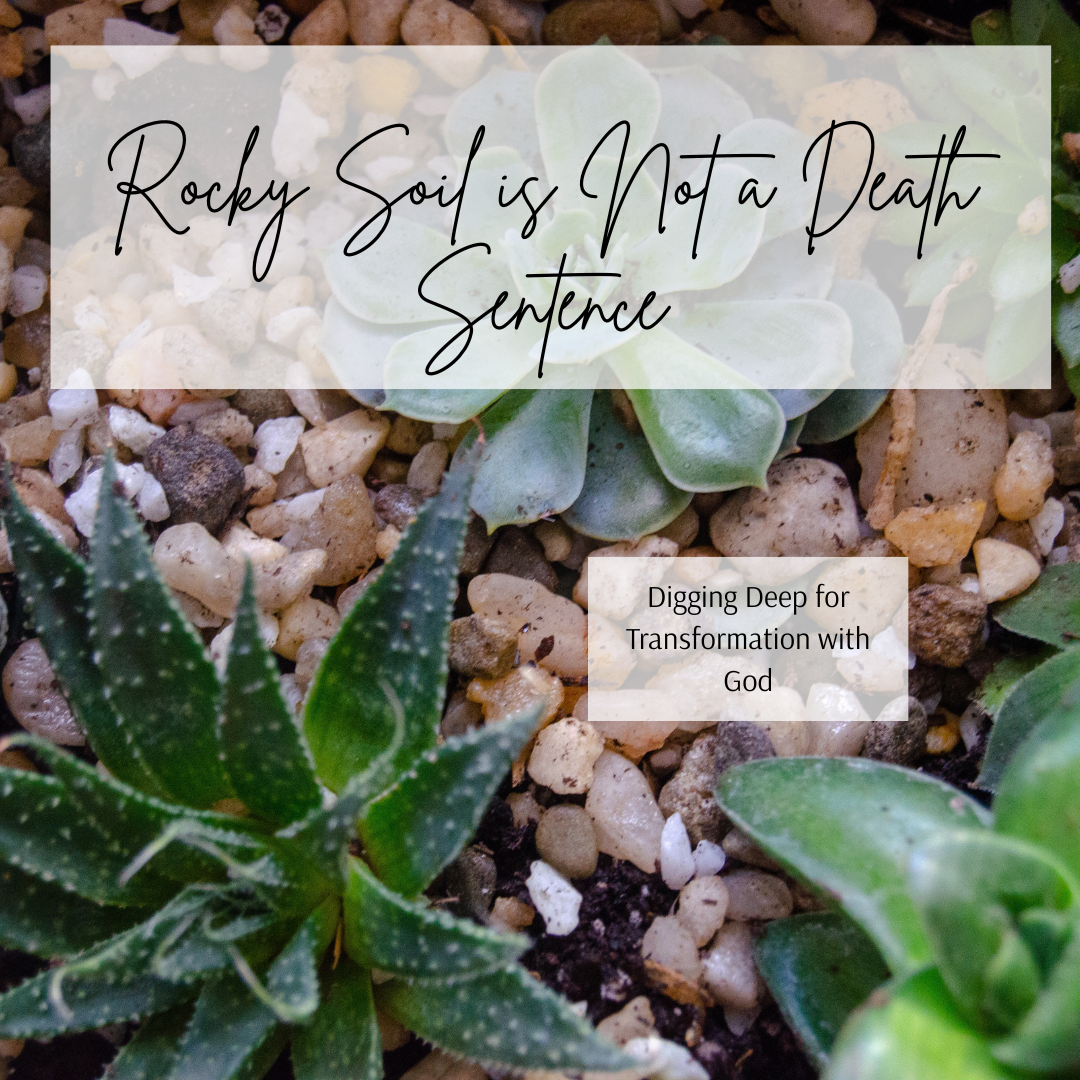Have you ever tried planting something in rocky soil? It’s not easy. The roots have a hard time finding enough space, the water drains too quickly, and the plant has to fight just to survive. In the Parable of the Sower, Jesus talks about seeds that fall on rocky soil. At first, they sprout with excitement, but when life gets tough, they wither because they don’t have deep roots.
I’ve noticed that a lot of people feel judged or defeated by a common interpretation of this parable—that if we don’t have perfect soil, we’re doomed. But how many of us have started something with enthusiasm only to feel like we’ve hit a wall or lost momentum?
What if Jesus wasn’t just pointing out the problem but offering us an opportunity to become aware of our blind spots? By recognizing where we’re stuck, we can work on those areas and get back on track—especially when we realize we’re not being as fruitful as we’re meant to be.
The goal isn’t to shame us but to remind us that growth is always possible. After all, He wouldn’t sow seeds on rocky soil if He thought it was beyond hope.
From an emotional health perspective, it’s crucial to approach this with curiosity and compassion. I’ve seen people experience breakthroughs in areas they thought were too full of rocks to ever thrive.
Understanding Rocky Soil
I love taking some time to think about what “rocky soil” might look like when it comes to emotional struggles, challenges, and beliefs that can get in the way of growth.
One of the most encouraging things I’ve found in Jesus’s words is this: “What is impossible for people is possible with God” (Luke 18:27).
Let’s be honest—changing our environment can feel nearly impossible sometimes. But in the parable, God is still sowing His seed in rocky soil, and that gives me hope. It shows that even if I’m starting from a less-than-ideal place, I can still cultivate growth.
I’m thinking of clients I’ve worked with who feel like their hearts are made of hard, rocky soil—where outside forces or past experiences have impacted their internal world and sabotaged any growth. They deeply desire to cultivate beautiful things, but there are subconscious blocks that compete with those desires.
My heart really goes out to them, because navigating those rocky internal landscapes can feel so tough. It takes real courage and grit to dig up those subconscious rocks, but it’s such important work. And it’s work that deserves all the support and compassion we can give.
I’ve also worked with people who didn’t learn how to hold onto their faith through challenging times—maybe because they were shielded from those struggles while growing up, or because when tough times did come, their caregivers didn’t know how to model perseverance. Instead, they coped in ways that kept them from growing or being fruitful.
These individuals may have grown up in more protected environments, and when difficulties arise, they feel unprepared to handle them.
This is where emotional health and spiritual growth really come together. Our backgrounds can shape how we respond to life’s challenges, and that’s an important factor to understand in the healing process.
God’s Promise in Imperfection
There is always hope, no matter how harsh the conditions may seem. It can be tough, but we all find ourselves identifying with rocky soil at times—even though we all want to be deeply rooted in faith and abundantly fruitful.
When life throws challenges our way, it’s easy to feel depleted and stuck.
When struggles start to steal our joy and we don’t feel like we’re thriving, discouragement can creep in, and it’s tempting to give up.
But even in those rocky seasons, we can remind ourselves that those tough times can be fertile ground of a different kind—an invitation for growth.
I love learning from people who’ve managed to thrive despite their own rocky soil stories. Reading and hearing their stories of overcoming hardship fills me with hope, faith, and inspiration.
We’re not alone—others have faced their own challenges and found a way through.
“But we even boast of our afflictions, knowing that affliction produces endurance, and endurance, proven character, and proven character, hope. And hope does not disappoint, because the love of God has been poured out into our hearts through the Holy Spirit who has been given to us.” (Romans 5:3-5, NAB)
Practical Steps for Growth
So, how do we develop deep roots, even in rocky seasons?
- Nourishment: Just like plants need water to thrive, our souls need spiritual nourishment. Time in God’s Word, prayer, worship, and community are essential. When times get tough, seeking God becomes even more crucial—especially when it feels the hardest. What kind of nourishment do you need to focus on during these seasons?
- Moisture Retention: Plants need help holding onto water, and we need help holding onto encouragement. Faith-filled friendships and reminders of God’s past faithfulness are essential for sustaining us. Surrounding ourselves with life-giving influences is key when we’re facing hard times. Take a moment to reflect on the people in your life: who uplifts you, and who drains you?
- Perseverance: Growth takes time, and some fruit takes longer to ripen than others. Galatians 5:22-23 reminds us that love, joy, peace, and on, are often developed through perseverance. If you don’t see immediate results, it doesn’t mean God isn’t working. Which flavor of the fruit of the Spirit do you feel is underdeveloped in your life right now? Can you sit with God and ask Him to help you nurture that fruit? And while you’re at it, ask Him to show you if there are any rocks in your life slowing down that growth process.
It’s also important to remember that diving into this work can be painful and slow. Many people shy away from it because of the discomfort it brings. But cultivating a mindset of perseverance—like we do when learning any new skill—is necessary. Anything worth growing takes effort and resilience.
I hope you’re feeling a renewed sense of encouragement, motivation, and inspiration to dig up those rocks and deepen your roots.
While we can’t always control our circumstances, we do have the power to choose how we respond. Instead of giving up when life feels dry, we can anchor ourselves in God’s Word, trust in His faithfulness, allow others to help us uncover blind spots, and stay open to growth.
So, what’s one step you can take this week to deepen your roots? Maybe it’s carving out some time for reflection, journaling your thoughts, or reaching out to a trusted friend for support.
Remember, even in rocky places, God can sustain us. Your journey of uncovering hidden rocks can lead to abundant fruitfulness.







